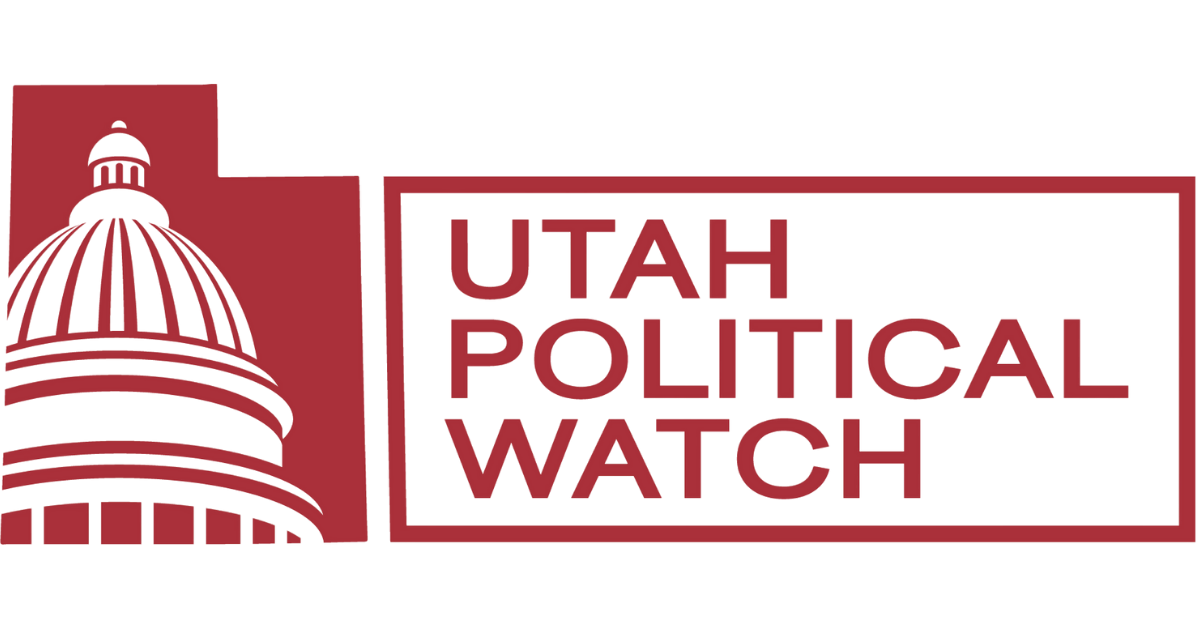Utah's universal vote-by-mail system has been a rousing success, leading to greater voter participation and turnout. However, Utah Republican legislative leaders appear to be teeing up some major changes to universal vote-by-mail after a critical audit released earlier this week.
The audit found that 1,400 dead people were still in the state's voter registration system and 700 of them were classified as "active," meaning they would have received a ballot in the mail. The audit also found that two of those dead voters cast a ballot in Salt Lake County during the 2023 election.
For some perspective, those 700 dead voters classified as active represent 0.0003% of the 1.8 million current active voters in Utah and the two ballots from allegedly deceased voters were 0.00004% of the 46,599 votes cast in Salt Lake County in 2023.
Despite what is essentially a fraction of a rounding error, Republican legislative leaders seem poised to throw the whole system in the garbage.
"If you had in-person voting, can a dead person vote?" House Speaker Mike Schultz, R-Hooper, asked Monday.
"I think the question comes is voting by mail really as secure as in-person voting and based off the audits that we have in front of us, it's clearly not the case. I think that's concerning to me going forward."
During the same hearing, State Elections Director Ryan Cowley noted that in-person voting also has its problems.
"No matter what system you have, there are pros and cons. We had one county that had 107 additional voters vote than checked in at a polling place, and that was with I.D. So no system is infallible. There's always going to be those kinds of things," Cowley said.
Democrats on the committee sensed that Schultz and other Republicans would likely use the audit results as a pretext for proposing major changes to vote-by-mail or even eliminating it entirely.
"There are many people in my district that may not be able to vote on election day because they're working, or they're working two or three jobs," House Minority Leader Angela Romero, D-Salt Lake City, said.
"I don't want this to be used as ammunition. I have concerns that people are going to use this audit to try and eliminate vote by mail."
Utah began offering vote-by-mail as an option in some counties in 2012. A year later, lawmakers approved legislation allowing counties to opt into the system. By 2018, all but two counties had moved to universal vote-by-mail. That led to big jumps in voter participation, especially in presidential election years.
According to data from the University of Florida's election lab, the percentage of Utah's voting eligible population who cast a ballot in 2020 and 2024 was much higher than the 2012 and 2016 elections when vote-by-mail was not implemented statewide.
- 2012 - 56.17%
- 2016 - 58.03%
- 2020 - 67.22%
- 2024 - 64.15%
Jeff Merchant, executive director of the Alliance for a Better Utah, says it's perplexing that Republicans would target vote-by-mail when you consider that the system primarily benefits voters who typically cast ballots for the GOP, especially voters aged 65 and over and rural voters.
"Mail-in balloting is very, very popular among Utahns. People in the state like it, particularly people that live in rural areas that don't necessarily have a drop box five minutes away from their house, as I'm guessing Speaker Schultz might," Merchant said.
He added that vote-by-mail also makes it more likely that Utahns who don't normally participate in elections would do so.
"As long as those people get a ballot in the mail in November, the likelihood of them going in and filling it out is relatively high. It's certainly higher than if they have to go into their local school or go into the county building and vote. They're not going to do that. But if the ballot is coming to them, they will," Merchant said.
Much of the current animosity among Utah Republicans about vote-by-mail is fueled by Donald Trump's lies about massive election fraud following his 2020 election loss to Joe Biden. Many of those concerns have evaporated after his victory in November.
Still, Several legislative Republicans are already planning to introduce bills to modify Utah's vote-by-mail in the 2024 session. One proposal in the works would require voters to request a mail-in ballot instead of receiving one by default.
Despite concerns about potential election shenanigans, voter fraud is extremely rare in the United States. A comprehensive study by the Brennan Center for Justice found incidents of suspected election fraud in America of between 0.0003% and 0.0025%.
"Given this tiny incident rate for voter impersonation fraud, it is more likely, that an American will be struck by lightning," the study concluded.
Your support powers our work, enabling us to deliver the essential insights and stories shaping Utah’s political landscape.
If you value independent journalism and want to see us grow, please consider becoming a paid subscriber to sustain our efforts or making a one-time donation to fuel impactful reporting.
Every contribution, big or small, makes a difference.
Thank you for your support.







